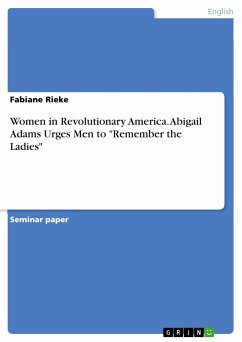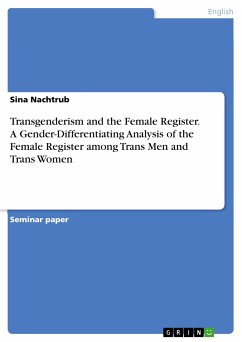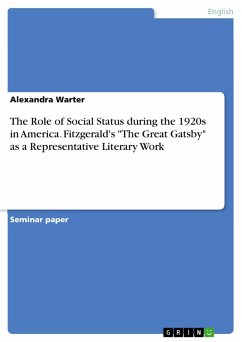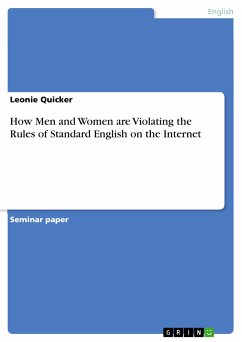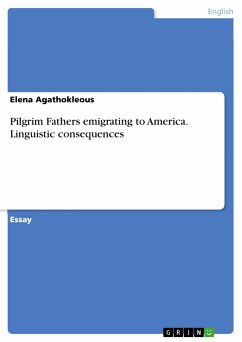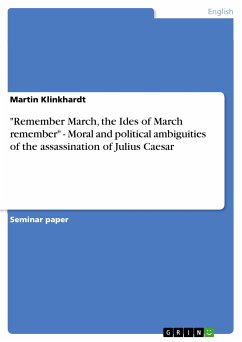Seminar paper from the year 2011 in the subject English Language and Literature Studies - Literature, grade: 1,7, University of Münster (Anglistik), language: English, abstract: Women of the eighteenth century took actions and thereby got the possibility to shortly dive into the public world. Especially literature, including the genre of the letter, seemed to have "blurred the lines between public and private". Since correspondences were, like women, associated with the private sector, it was allowed to communicate through them and therefore they enabled women to approach the public sphere in a way. Thus, many women made use of this means to criticize the lack of equal rights while simultaneously performing their expected role of womanhood in the eighteenth century. One of these women was Abigail Adams, who mentioned in a letter to her husband in 1775: "My pen is always freer than my tongue" (Ellis 2).Adams fulfilled her conservative duties while she was longing for equality at the same time. How did she finally succeed in voicing her discontent in a patriarchal state? Before concentrating on this question, based on correspondences of the year 1776, called "Remember the Ladies", the general image of Womanhood in the historical and political development will be outlined including female approaches to the public sphere as well. Considering this historical context, the third part of the paper will illustrate the function of the genre of letters. Finally, a thorough analysis of Abigail Adam¿s letters will be provided in the fourth part of the paper, which will point out in how far letter writing helps to successfully put forward her arguments.
Dieser Download kann aus rechtlichen Gründen nur mit Rechnungsadresse in A, B, BG, CY, CZ, D, DK, EW, E, FIN, F, GR, HR, H, IRL, I, LT, L, LR, M, NL, PL, P, R, S, SLO, SK ausgeliefert werden.

